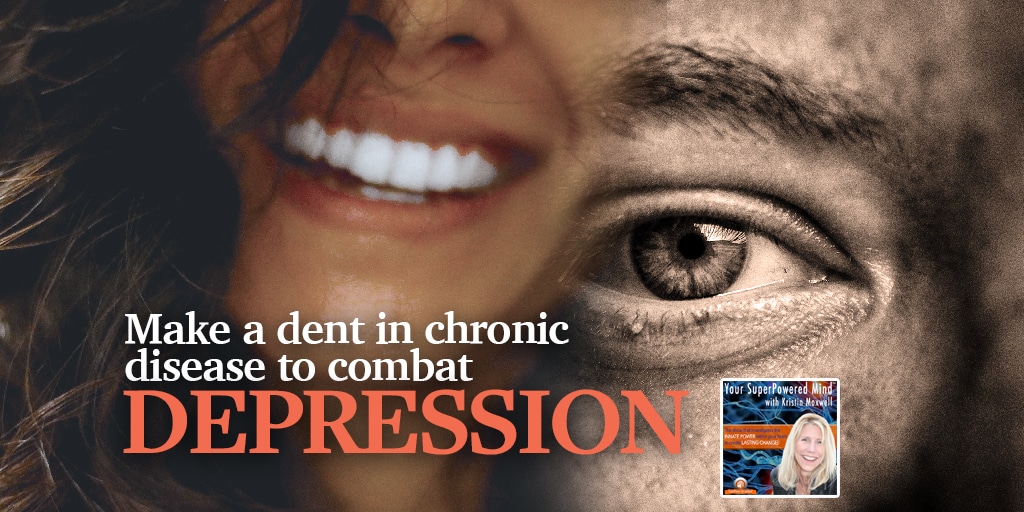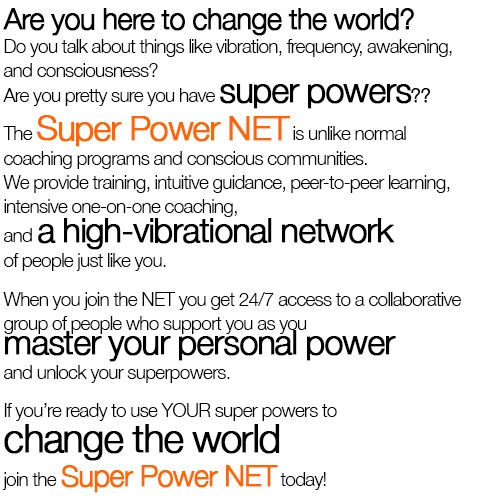
Hi everyone, welcome to Your SuperPowered Mind. I’m your host, Kristin Maxwell, and today we are going to talk about how to make a dent in chronic disease to combat depression and anxiety. As you know, in this show, we explore the process of transformation, and give you tools and strategies that you can use to transform your own life.
Our guest today is Dr. Trish Murray. She is the founder of Discover Health Functional Medicine Centre. As a physician certified in four different medical specialties, including internal medicine, osteopathic manipulative medicine, energy medicine, and functional medicine, she and her team at Discover Health have guided thousands of patients to restore and optimize their health from a multitude of chronic diseases. How do you like to be called Dr. Trish? Dr. Murray? How do you like to be addressed?
Many of my patients call me Trish or Dr. Trish. Whatever people are comfortable with.
Okay, well great, well Dr. Trish, welcome to Your SuperPowered Mind.
Oh thank you Kristin, it’s an honor to be here.
That’s great. I know you’ve got a lot too that you can share with our listeners, which will be very helpful.
My first question is always what super power did you uncover as a result of mastering your mind?

My super power is that I never, ever want to stop learning.
Well, I’ve been learning my whole life, and that’s the biggest thing, I think, is my super power. My super power is that I never, ever want to stop learning. That different options, in different situations, different avenues to explore, keep me curious, keep me wondering, and that keeps me young and keeps me just constantly searching for more answers.
That’s amazing, and yeah, I’ve gotta say the fact that you are certified in four different medical specialties, that, right there, is exterior proof.
Yeah. I just keep learning. It’s awesome.
That is great. I do know that one of my heroes has always been my grandmother, my maternal grandmother. She was constantly learning, right up until the day she died. She was learning French in her 80’s. Not that she would ever go to, would ever have the opportunity, and I admired that so much.
One of the things that I’m really excited to talk to you about is sort of this link of how depression and anxiety are related to our health. I know some people might know this, but let’s just assume people don’t know that their health and their gut health are related to their mood.
Oh absolutely. I mean this is the one thing that I wanted to try and help people understand in my new book, called Make a D.E.N.T.™ in Chronic Disease, and the D.E.N.T. is an acronym. D stands for detox, E stands for exercise, N stands for nutrition, and T stands for transformation, and transformation is around stress and mood and things like that. What I start out with in the book is discussion of your immune system. The fact that our immune system, in so many of us today, is hypersensitive and inflamed and irritated and angry. When that happens, that happens to our brains as well, and our nervous system. So anxiety, depression, attention deficit, for so many people, happens because our immune systems and our nervous systems are hypersensitive.
What’s the root cause? In functional medicine, which is my primary focus with my patients, is about getting to the root cause of people’s diseases or chronic conditions. You’ve got to look at their gut health because what do we put and expose ourselves to every day, or more than anything else? That’s food. If there are certain food sensitivities or certain food allergies, and if our gut health is not optimal, and the bacteria that we live, for example, in a symbiotic relationship with in our gut, are not healthy and the right gang running the neighborhood, then we are gonna be off balance, hypersensitive, and wired. These types of things take people down a negative path.
Yes. That’s so well explained. I guess my question would be is if somebody, you know if, they come to you and they’re depressed and they’re anxious, and traditional and say, antidepressants or therapy didn’t work, what do you do?

One of the number one tools I teach everyone to do is called a comprehensive elimination diet, where you would avoid some of the biggest food sensitivities in our standard American diet.
That’s a fantastic question. First of all, so many people out there come to me, or are out there suffering with, the pill-for-every-ill mentality. In the traditional medical model, which I was trained in, I actually left that model and went out on my own, because it doesn’t work. I’ve experienced that in my own life. The point is, when people come to us, we literally, first of all, get to know them and ask them about their entire life’s history. Because what happened to you when you were born, or what happened to you in your first 10 years of your life, or your teens, plays a part in where you are and how you’re living your life and how you’re feeling today.
So first of all, we do a history much more than anyone else would. Besides that, we obviously do the typical intake and the physical exams, but we also look at blood work, and look for markers on inflammation or hypersensitivity I was talking about before. Then we also help people with empowering tools that they can implement on their own. One of the number one tools I teach everyone to do is called a comprehensive elimination diet, where you would avoid some of the biggest food sensitivities in our standard American diet. And you noticed that stands for SAD. These are gluten, dairy, nightshade vegetables, soy, and some others. If someone, for example, for three weeks, avoids these different foods and puts themselves through a comprehensive elimination diet, what they will notice is they may feel fantastic in week three. Then what they would do is systematically re-challenge the different foods to find out which foods are irritating their immune system. This is just one example of how what we do is very, very different than the standard medical model.
Right! If people go on an elimination diet, which I’ve gotta say, I’ve been on elimination diets myself and they’re a little bit hard at first, for sure. What kind of differences? Would they see differences in their mood or just in their physical self? What kind of changes do you see?
Oh, it could be. Everyone’s different. And that’s the point of everyone. There’s certain tools that people would implement, and anyone can implement, but the reaction that people will have is very individual. Someone absolutely may see a decrease in pain. They may see improvement in their digestive symptoms. They also will absolutely see an improvement in mood, decreased anxiety, decreased feeling of their cortisol, like stress levels, when the cortisol’s high and you feel that flush of heat when anything seems to disturb you. Those types of things quiet in the third week of an elimination diet. For many, many, many people.
Wow. That’s great. We actually have to go to a break right now, and I really want to go deeper into some of the things that other people can do to make a dent in their chronic disease, to help them combat depression. But before we go, where can people learn more about you and your work?
Well my clinic is called Discover Health Functional Medicine Centre. The address for the website is discoverhealthfmc.com. Then we also have a Facebook page, which of course is Discover Health Functional Medicine Centre on Facebook.
Good! And am I correct that you have some sort of quiz or something people can look at to sort of get an assessment of their health?
Absolutely! On the homepage of my website, if people go over to the heading that says Start Here, there is a medical symptoms questionnaire that they can actually take and score themselves on many different symptoms and systems of their body. If someone scores over 30, the optimal health is to score less than 30. I see many people that score over 100.
Wow. Okay, we’ll go deeper into this when we come back, just a second.
To listen to the entire show click on the player above or go to the SuperPower Up! podcast on iTunes.
Podcast: Play in new window


